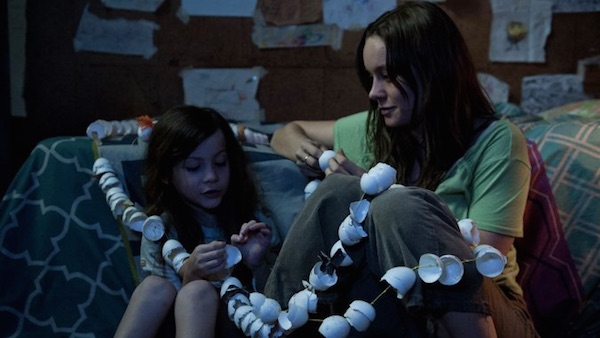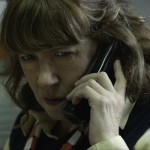Room Review
Director Lenny Abrahamson’s Room plays like a non-science-fiction version of The Matrix. Like the Wachowskis’ action landmark, we’re introduced to its characters in an “unreal” world before they’re able to escape and discover (or rediscover) what’s real. Obviously, the two films vary in big ways — particularly when it comes to the mechanism that drives this shift from unreal to real — but the idea that reality works better in your head than it does in practice is something that drives both films. It made The Matrix one of the most thought-provoking action films of all time. And it makes Room one of the most emotionally grueling moviegoing experiences of 2015.
It all works in Room because it’s told from the point of view of a five-year-old boy who doesn’t know the “real world” exists. Neo Jack (Jacob Tremblay) was born in “Room,” which is nothing more than a shed converted into very meager living quarters where a man we come to know as Old Nick (Sean Bridgers) has kept Joy (Brie Larson) as his sex slave for seven years. (Jack was born after the first two.)
Joy has told Jack stories that Room is the whole world and outside is the planets and heaven, but when a mouse disrupts their daily routine, she realizes she can’t keep her growing boy in the dark forever, and why would she want to? It’s time to get Jack out — to let him see the sun, breathe fresh air, meet his grandparents (Joan Allen and William H. Macy), and grow up like a normal young boy.
The film’s two halves couldn’t be more different. The dividing point is a sequence defined by extraordinary tension — something even readers of Emma Donoghue’s novel will experience thanks to Abrahamson’s eye-opening directorial skill. Before this sequence, it’s a story about an awful reality that our two protagonists have defined in such a way that helps them survive it psychologically. After the sequence, it’s more about living in the moment and how hard that can be when their imaginations kept them going for so long.
The problem with the film — and it’s a minor one — is that the story feels extremely self-contained. Room washes over you, and while it involves you emotionally, there’s not much after the credits begin to roll. Sure, you’ll linger on the clever production design, lovely score, and especially, the magnificent performances from its actors, but those looking for intellectual meat to chew on will leave Room hungry.
Let’s talk about those performances, though, because Brie Larson, in case you hadn’t noticed from films like 21 Jump Street and Short Term 12, is quite the actress. Room will likely win her an Oscar in a few weeks, and it’s a tough acknowledgment to argue with. She runs the emotional gamut, from impossibly resilient to completely withered. She completely puts herself out there without ever dipping into transparent manipulation. It’s a thing of beauty.
Jacob Tremblay is remarkably her equal throughout, giving one of the finest performances from a child actor or actress in recent memory. Jack is our window into this world even more than Joy is, and so Tremblay’s excellence is absolutely vital to the film’s success. Joan Allen’s lovely work as Joy’s mother doesn’t make or break the film, but it’s wonderful to see her imbue an arguably under-written character with depth and real humanity.
Abrahamson and his crew, I’d argue, make the best version of Room possible. It’s a film that wears its heart on its sleeve, and while it will never escape some of the cinematic limitations of its scenario, it also embraces them without pandering or — hey, The Revenant! — devolving into misery for misery’s sake.
















